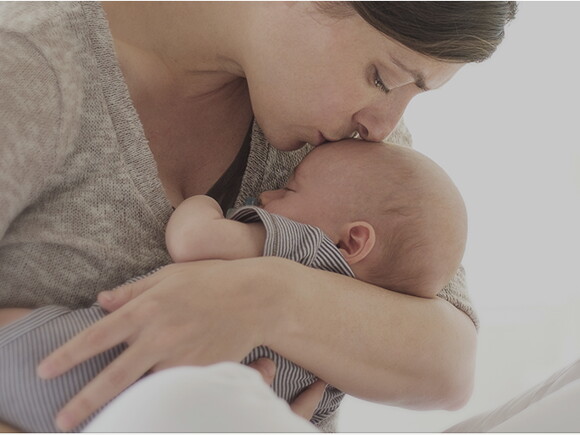
How To Help Baby Sleep Better
Learn the importance of baby sleep for growth and development. Discover red flags in your baby's sleep patterns and ensure they get the rest they need.
Ensuring your baby gets quality sleep is crucial for their growth and well-being. As a new mother, you may often find yourself concerned about how to help your child to rest better. Understanding the basics of baby sleep patterns and creating a conducive sleep environment can make a significant difference.
Sleep is essential for a baby's growth, brain development, and overall health. Proper sleep helps in consolidating memories, supporting physical growth, and boosting the immune system. However, many factors can affect a baby's sleep, such as feeding schedules, developmental milestones, and environmental influences.
By learning more about the intricacies of baby sleep you can identify your baby's sleep needs and patterns. This knowledge will empower you to make informed decisions and adopt strategies that can help improve your baby's sleep quality.
Why is Baby Sleep Important?
Baby sleep is more than just a restful period for your little one; it is a fundamental component of their growth and development. Understanding the importance of sleep for babies can help you prioritize and establish healthy sleep habits early on.
Sleep is essential for brain development in infants. It supports the processing and consolidation of new information and experiences, which is crucial for cognitive development.
It is linked to better emotional regulation in babies. Well-rested infants are generally happier and more content, whereas lack of sleep can lead to fussiness, irritability, and difficulty in soothing.
Babies who sleep well tend to have better behavior and temperament. They are more likely to be calm, alert, and ready to engage with their surroundings, making daily routines smoother and more enjoyable for both the baby and the parents.
Recognizing the importance of baby sleep allows you to focus on creating an environment and routine that supports restful, quality sleep for your little one.
How to Help Baby Sleep Better?
Ensuring your baby gets quality sleep is essential for their growth and your peace of mind. Here are some practical tips to help improve your baby's sleep:
Establish a Consistent Bedtime Routine
Creating a predictable bedtime routine helps signal to your baby that it's time to sleep. This routine can include activities like a warm bath, gentle rocking, reading a story, or singing a lullaby.
Consistency is key, as it helps your baby associate these activities with winding down and preparing for sleep.
Create a Sleep-Friendly Environment
The sleep environment plays a crucial role in how well your baby sleeps. Ensure the room is quiet, dark, and at a comfortable temperature.
Using blackout curtains and a white noise machine can help minimize disruptions and create a calming atmosphere.
Set a Regular Sleep Schedule
Babies thrive on routine, and setting regular sleep and wake times can help regulate their internal clock. Aim to put your baby to bed and wake them up at the same times each day to establish a stable sleep pattern.
Encourage Self-Soothing
Teaching your baby to self-soothe can promote longer and more restful sleep. Place your baby in their crib when they are drowsy but still awake, allowing them to learn how to fall asleep on their own.
This can reduce nighttime awakenings and improve sleep quality.
Monitor Feeding Times
Feeding schedules can impact your baby's sleep. Try to establish a feeding routine that aligns with their sleep schedule. Avoid feeding your baby right before bedtime, as this can create a dependency on feeding to fall asleep.
Be Mindful of Daytime Naps
While naps are important, too much daytime sleep can affect nighttime rest. Ensure your baby has an appropriate balance of naps and awake time during the day to help them sleep better at night.
Stay Attuned to Sleep Cues
Pay attention to your baby's sleep cues, such as rubbing their eyes, yawning, or becoming fussy. Responding to these cues promptly can help prevent overtiredness, making it easier for your baby to fall asleep.
By implementing these strategies, you can create a supportive sleep environment and routine that helps your baby sleep better. Remember, every baby is different, so it may take some time to find what works best for your little one.

How to Help Baby Sleep Better?
While variations in sleep patterns are normal for babies, certain signs may indicate underlying issues that need attention. Recognizing these red flags can help you address potential problems early and ensure your baby gets the quality sleep they need.
- If your baby consistently struggles to fall asleep despite having a calming bedtime routine and a conducive sleep environment, it might signal an issue.
- If they wake up multiple times and have trouble settling back to sleep, it may indicate sleep disturbances or developmental changes that need to be addressed.
- If their naps are consistently short (less than 30 minutes) or erratic, it could signal a problem with their sleep cycle or environment.
- While some fussiness is normal, excessive irritability and difficulty soothing your baby could indicate insufficient sleep or poor sleep quality.
- Pay attention to your baby's breathing patterns during sleep. Snoring, gasping, or pauses in breathing may suggest sleep apnea or other respiratory issues that require medical evaluation.
- If your baby seems unusually sleepy or lethargic during the day, it could be a sign that they are not getting enough restful sleep at night. This may be due to frequent night wakings, sleep disorders, or other health issues.
- Adequate sleep is crucial for physical development. If your baby is not gaining weight or growing at a healthy rate, poor sleep quality or insufficient sleep duration could be contributing factors.
- Sudden changes in your baby’s feeding patterns, such as reduced appetite or difficulty feeding, can be linked to sleep problems. Proper sleep supports healthy feeding habits and overall development.
If you notice any of these red flags in your baby's sleep, it is important to consult with a pediatrician. Addressing sleep issues early on can help ensure your baby gets the rest they need for optimal growth and development. By staying attuned to your baby's sleep patterns and behaviors, you can take proactive steps to support their sleep health and well-being.

Gain a better understanding of your child's development with the help of our stages
































